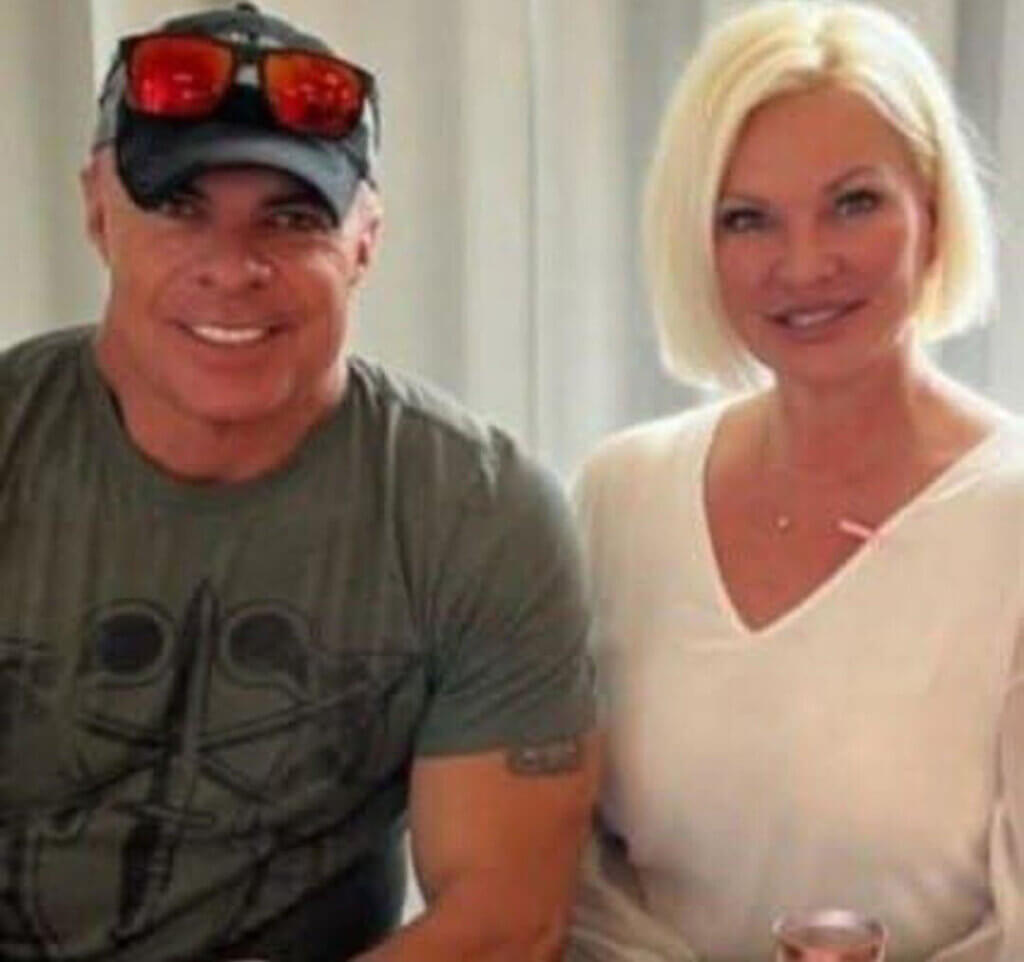Top Stories
Local Army veteran’s dangerous I-80 standoff was foretold — and ignored

Erick Holmes in Farah, Afghanistan in 2011. Photo: Neysa Holmes via Townlift
After a high-speed chase that ended in Summit County and multiple arrests, decorated veteran Erick Holmes sits in solitary at Wasatch County Jail — for what his wife calls a “suicidal cry for help."
HEBER CITY, Utah – On June 2, Park City locals witnessed the end of a high-speed police chase on I-80 near Silver Creek. The man arrested was Frederick “Erick” Holmes — a decorated U.S. Army veteran, Bronze Star recipient, and career Green Beret who served five tours in Afghanistan and Iraq.
Holmes has been diagnosed with PTSD, traumatic brain injury and drug addiction — a battle his wife, Neysa Holmes, has experienced alongside him: the suicide attempts, psychotic breaks, prescription drug abuse, and desperate calls to a system that never answers.
“He has had a death wish for months,” Neysa said. “That day was a suicide mission.”
On June 2, a Monday morning, Neysa watched from the balcony of their home in Timberlakes Estates as Erick, in a mental health spiral, sped off in his truck hauling a boat. The trailer disconnected, hurling the vessel into the woods. Heber City Police and the Utah Highway Patrol picked up Holmes’ trail as he headed north on U.S. 40 and attempted to stop him using spike strips. Although one of his tires was flattened, Holmes continued driving.

The pursuit came to an end on eastbound I-80 when Erick tried to squeeze between a semi-truck and another vehicle, an arrest affidavit said. His car spun out and came to a stop on the shoulder. One lane of eastbound I-80 was temporarily closed during the incident.
Erick Holmes was not injured in the crash and there were no other injuries reported. He was booked into the Wasatch County Jail, where he was held without bail. Neysa said for weeks she had been speaking with authorities and the Salt Lake City Veteran’s Affairs office in the hopes that he would be authorized to receive mental health treatment.
Several days later, just in time for his second court appearance in the span of several months, a referral from the VA for treatment came through – this after prior attempts to have treatment authorized stretching back months. While Erick was waiting in the Wasatch County Jail for his hearing, no mental health services were administered or offered to him.
Erick faces multiple charges, including felony counts of failing to stop for law enforcement and violating a protective order. He also faces misdemeanor charges of criminal mischief, reckless driving, and driving under the influence. Though a police report states the call for help on June 2 was classified as a domestic violence call, Neysa said she has filed for the department to retract the report because it was a suicide prevention call.
The incident on June 2 was just the latest in a string of arrests for Holmes, including two separate felony domestic violence cases – an assault in February and an aggravated assault charge in May.
Both instances, Neysa claims, were PTSD-related episodes that became progressively more serious. The one on May left her with 9 staples along the back side of her head after Erick pushed her to the ground when she tried to stop him from taking their side-by-side, which he had threatened to drive off a cliff.
On Wednesday, June 11, 4th District Judge, Jennifer Mabey, allowed for Holmes to be transferred to a treatment facility in Midway that specializes in trauma and substance abuse treatment, provided he wear an ankle monitor, to begin a continuum of care he had arguably needed for months.
Mabey’s decision came after a previous decision to deny Holmes a mental health evaluation after being arrested in February.
In a letter written to Mabey and sent to Heber’s District Court on May 14, after his arrest on the 12th, Neysa described Erick’s behavior after the denial had been made.

“In the weeks that followed, Frederick Holmes threatened to take his own life and repeatedly asked me to take it from him,” she wrote. “ I, the victim who had advocated for his mental health intervention, tried to prevent that suicide attempt, was seriously injured in the process. This outcome was not only tragic, it was preventable.”
TownLift learned Erick was dismissed from Chateau Recovery less than 24 hours after being admitted for using offensive language. He was sent back to jail and last week after a hearing June 25, Judge Maybe agreed that he could be transferred to Salt Lake City Behavioral Health. That treatment facility also has sent him back to the Wasatch County Jail for what they termed as misconduct, according to discharge papers from the facility.
Holmes currently awaits another hearing scheduled for July 9, 2025. He is being held in solitary confinement in the Wasatch County Jail.
A System That Failed
But the deeper tragedy, Neysa says, is what led to this — a systemic failure of the Department of Veterans Affairs to provide timely and adequate care for a man suffering from PTSD and traumatic brain injury (both conditions the VA has diagnosed with a 100% disability rating) along with years of psychological trauma and a criminal justice system ill-equipped to deal with veterans in crisis.
“Before this in May, Erick went to the Salt Lake City VA,” Neysa said. “He told them, ‘I’m desperate. I’m self-medicating. I need help before I destroy my family.’ And they told him to come back in June.”
That was months ago. Since then he spiraled. Despite multiple requests from the family, from attorneys, and even from jail personnel in Wasatch County after his first arrest, the VA had not approved a referral for inpatient behavioral care. It came months later on June 11, after he was incarcerated for the second time in a span of several months for a high-speed suicide mission that shut down a major interstate.
The Salt Lake Chapter of the VA would not comment on the reason for the delay in Erick Holmes’ referral and they referred TownLift’s inquiries to Peter Kasperowitz, Press Secretary for the Department of Veteran’s affairs.

Kasperowitz said he would not comment on matters related to Holmes due to privacy laws and he also declined comment on broad policy-related questions.
According to Neysa, the VA’s failures stretch across multiple states — Georgia, Tennessee, Alabama, and Utah — where repeated efforts to secure treatment have been met with denials, delays, and bureaucratic red tape.
In October 2022, the Green Beret Foundation helped get Erick court-ordered treatment at Warriors Heart in Texas. But when the center later required a clean drug test before reentry, he was deemed ineligible, despite having a diagnosed addiction and a confirmed TBI from a facility in North Carolina. His probation was revoked, and a warrant issued.
In 2023, after an attempted suicide, the couple sought a VA referral to The Ranch, a mental health facility in Tennessee. No referral came. The same happened in February 2024 — a mental health crisis ended in jail time, not treatment. Later, Erick had an outburst in court, which Neysa says was further proof of a man in psychological distress, not defiance.
“This could all have been prevented,” she said.
A Plea for Dignity and Fight for Reform
Neysa, who holds a PhD in psychology and wrote a book about her husband, is now calling on lawmakers to intervene on behalf of her husband.
In a letter to Rep. Jack Bergman — a retired Marine general — she urged Congress to reform policies like 38 U.S.C. § 5313, which terminates veterans’ VA benefits after 60 days of incarceration, even when that incarceration stems from service-connected mental health issues.
She has also called on the Senate Committee on Veteran’s Affairs, urging attention to what she terms as “clear and ongoing failure of both the VA and the legal system.”
“Veterans, like Erick, did not hesitate when called to serve. Yet today, they are abandoned, criminalized, and stripped of benefits at their most vulnerable moments,” Neysa’s letter reads.
She is also working with fellow advocates, including families of Navy SEALs who died by suicide, to demand structural change.
“This Isn’t Special Treatment — It’s Basic Human Dignity”
The Holmes family has served this country at a high cost. Erick’s family’s military service stretches back eight generations – one of his great grandfathers crossed the Delaware River during the Revolutionary War and died in combat in 1776. His grandfather served in World War II and two of their sons are currently enlisted – Kihle, 29, is in the Army and Erick, 21, is a Marine, currently serving in South Korea.

“Erick deserves treatment and honor, not punishment,” Neysa said. “We’re not asking for special treatment. We are begging for timely, humane, evidence-based care.”
The Department of Veterans Affairs reports that approximately 17 veterans die by suicide each day. But Neysa argues the real crisis is even deeper — a silent burden shouldered by families who become caregivers, crisis responders, and advocates.
Despite everything, Neysa says Erick remains the same loyal, dedicated man she’s known since childhood — a father, a fighter, and a person worth saving.
“This isn’t a crazy man. This is a man in crisis,” she said. “And the country he fought for has turned its back on him.”
She’s not telling their story for sympathy, she says, but for change.
“If we turn up the heat on the system, it gets noticed. And attention can save lives — not just Erick’s, but countless others still slipping through the cracks,” Neysa said.
Editor’s note: a correction was made to this story. “Methamphetamine use” was corrected to “prescription drug abuse.” The family of prescription drugs Holmes abused was methamphetamine.




















